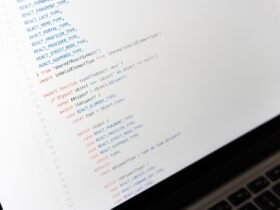Hey du! In diesem Artikel geht es darum, die Gründe hinter einem bestimmten Phänomen oder einer Entscheidung zu diskutieren. Es ist immer spannend zu verstehen, warum Menschen bestimmte Handlungen ausführen oder Entscheidungen treffen, oder? Wir werden uns hier mit den psychologischen Faktoren, wirtschaftlichen Überlegungen und sozialen Einflüssen befassen, die unser Verhalten und unsere Entscheidungen beeinflussen können.
Psychological Factors
Psychological factors play a significant role in shaping our decision-making and behavior. Our minds are complex, and various psychological factors can influence our choices in unexpected ways. One such factor is cognitive biases. These are mental shortcuts or patterns of thinking that can lead us to make irrational decisions. For example, the availability heuristic bias can cause us to overestimate the likelihood of an event based on how easily we can recall similar instances.
Another psychological factor is the influence of emotions. Our emotions can heavily impact our decision-making process. For instance, when we are feeling angry or fearful, we may be more likely to make impulsive choices without considering the long-term consequences. On the other hand, positive emotions like happiness can lead us to take risks or make decisions that prioritize immediate gratification over long-term goals.
Furthermore, social influence plays a significant role in our decision-making. We are social creatures, and the opinions and behaviors of others can have a powerful impact on our own choices. This phenomenon is known as social proof. We tend to look to others for guidance in uncertain situations, assuming that if many people are doing something, it must be the right thing to do. This can influence everything from the products we buy to the actions we take.
In conclusion, understanding the psychological factors that influence decision-making and behavior is crucial. Cognitive biases, emotions, and social influence all play a part in shaping our choices. By being aware of these factors, we can make more informed decisions and better navigate the complexities of human behavior.
Economic Considerations
Economic considerations play a crucial role in shaping our decisions and actions. When it comes to making choices, financial factors often take center stage. Whether we are deciding what to buy, where to invest, or how to allocate our resources, economics guides our decision-making process.
One important economic factor is cost. We weigh the price of a product or service against its perceived value and benefits. Is it worth the investment? Will it provide a return on our investment? These questions drive our economic decision-making. Additionally, economic considerations also include factors such as income, budget constraints, and the availability of resources. These factors shape our choices and determine what is financially feasible for us.
Furthermore, economic considerations extend beyond individual decision-making. They also influence larger-scale actions, such as government policies and business strategies. Economic factors like market demand, competition, and profitability drive businesses to make certain choices. Similarly, governments consider economic factors when formulating policies that impact the welfare of their citizens.
In conclusion, economic considerations are a driving force behind our actions and choices. They shape our decision-making process at both individual and societal levels. By understanding and analyzing these economic factors, we can make informed choices that align with our financial goals and aspirations.
Social Influences
Soziale Einflüsse spielen eine entscheidende Rolle bei unseren Entscheidungen und Verhaltensweisen. Menschen sind soziale Wesen, die stark von ihrem sozialen Umfeld beeinflusst werden. Unsere Entscheidungen werden oft von den Meinungen, Werten und Verhaltensweisen der Menschen um uns herum beeinflusst.
Ein wichtiger sozialer Einflussfaktor ist der Konformitätsdruck. Menschen neigen dazu, sich den Normen und Erwartungen ihrer sozialen Gruppen anzupassen, um Akzeptanz und Zugehörigkeit zu erfahren. Dies kann dazu führen, dass wir Entscheidungen treffen, die wir allein möglicherweise nicht getroffen hätten.
Ein weiterer sozialer Einflussfaktor ist der soziale Vergleich. Wir neigen dazu, uns mit anderen zu vergleichen, um unsere eigenen Entscheidungen und Verhaltensweisen zu bewerten. Wenn wir sehen, dass andere Menschen bestimmte Entscheidungen treffen oder bestimmte Verhaltensweisen zeigen, kann dies unseren eigenen Entscheidungsprozess beeinflussen.
Tabelle: Soziale Einflüsse auf Entscheidungen und Verhalten
| Sozialer Einflussfaktor | Auswirkungen |
|---|---|
| Konformitätsdruck | Anpassung an soziale Normen |
| Sozialer Vergleich | Beeinflussung der eigenen Entscheidungen |
| Gruppenzwang | Einfluss durch Gruppenmitglieder |
Insgesamt sind soziale Einflüsse ein bedeutender Faktor bei der Entscheidungsfindung und dem Verhalten von Menschen. Indem wir uns der sozialen Einflüsse bewusst sind, können wir besser verstehen, warum wir bestimmte Entscheidungen treffen und wie wir unsere eigenen Entscheidungen unabhängiger gestalten können.

















Eine Antwort hinterlassen